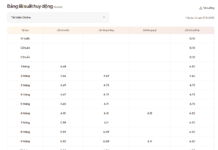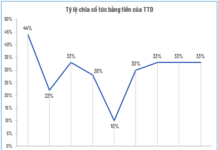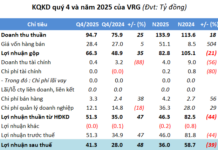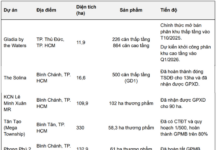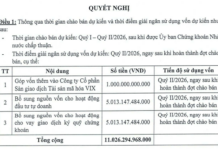Avoiding the Pitfall of Generalization
Recently, the Ministry of Construction proposed a regulation on loan limits for commercial housing: No more than 50% of the contract value for the purchase of a second home, and no more than 30% for the third home onwards. This policy aims to curb speculation and promote a healthier market operation.
According to the Vietnam Real Estate Market Research and Assessment Institute (VARS IRE), this proposal should avoid lumping the “speculative, short-term trading” group with individuals buying second or third homes for legitimate purposes, such as business exploitation or asset accumulation for children. The institute argues that investors buying for long-term rental or accumulation have a positive impact, enhancing liquidity and market vibrancy.
“If credit restrictions are applied uniformly without distinguishing between groups, it could eliminate the market’s positive drivers,” VARS IRE stated.
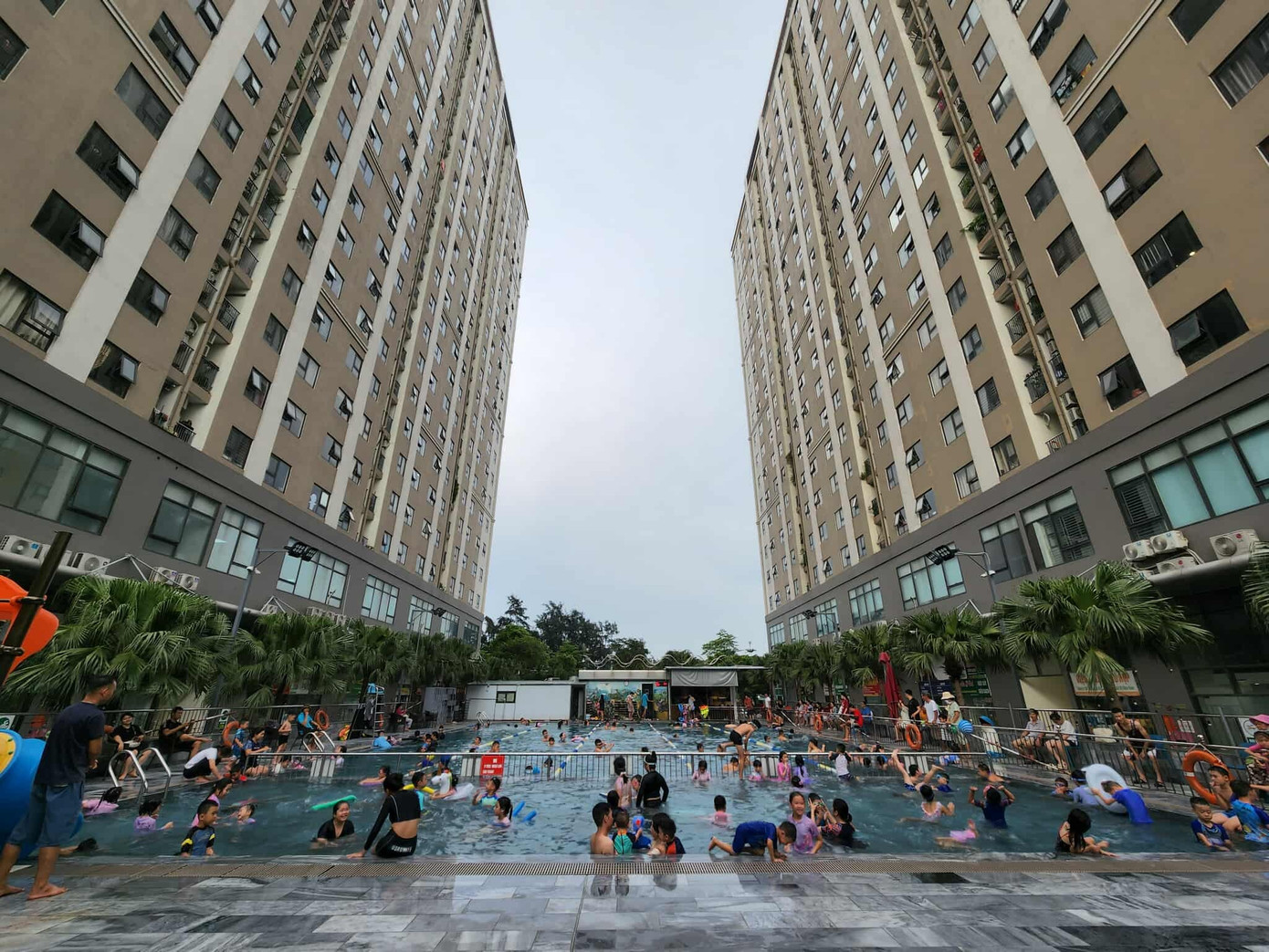
Credit tightening should not be applied indiscriminately.
Mr. Nguyễn Văn Đính, Chairman of the Vietnam Real Estate Brokerage Association (VARS), noted that Vietnamese people have a habit of accumulating real estate for investment or for their children. “This is a legitimate need and should be encouraged. Buying a house for rent or a shop also helps meet market demand. Equating real needs with speculation will reduce demand and hinder businesses,” he said.
According to Mr. Đính, credit tightening or taxation should not be applied universally but should target speculators through technical measures. Otherwise, the market will become imbalanced, liquidity will decrease, and business competitiveness will suffer.
VARS IRE believes that the long-term solution to reducing housing prices is to develop affordable commercial housing. According to this year’s Q2 report, luxury apartments account for over 60% of the total supply, while affordable housing is nearly absent, appearing only in some social housing projects.
In major cities like Hanoi and Ho Chi Minh City, affordable housing has “disappeared” for years, causing a supply-demand mismatch that drives prices higher. VARS IRE concludes, “When demand exceeds supply, price increases are inevitable,” making increased supply the fundamental solution rather than universal credit tightening.
VARS IRE recommends that regulatory bodies develop flexible, feasible policies, avoiding the mechanical application of social housing program regulations, which remain problematic. Solutions must achieve two goals: controlling speculation without reducing legitimate demand and ensuring long-term market stability.
Restoring the Market’s Role
Prof. Đặng Hùng Võ, former Deputy Minister of Natural Resources and Environment, emphasized that the most critical step now is to restore the market’s role in resource and capital allocation.
According to Prof. Võ, a market economy maximizes the capitalization mechanism, allowing capital to flow flexibly to the most efficient areas. “Avoid imposing regulations that hinder capitalization. Blocking capitalization is equivalent to blocking the market, which is anti-market,” he stressed.
Prof. Võ noted that many current regulations still carry a subsidy-era mindset, distorting market principles and hindering development.
“We are using a subsidy-era mindset to manage the market, which is entirely detrimental to economic growth. Vietnam often requests other countries to recognize it as a market economy, but most G7 nations have not done so because they see us operating with outdated thinking, making decisions contrary to market principles,” he analyzed.
Regarding housing prices, Prof. Võ stated that the root issue lies not in credit tightening or loosening but in supply policies. “The housing price issue is a supply issue. Without increasing supply in various segments, especially for low- and middle-income earners, prices will continue to rise. This is the state’s policy responsibility,” he said.
However, Prof. Võ emphasized that in a market economy, businesses, not the state, determine investment directions. “Businesses will invest in profitable segments, which is natural. The state cannot and should not intervene by restricting credit or prohibiting investment in certain areas. Doing so contradicts market mechanisms,” he affirmed.
According to Prof. Võ, the state’s role is not to decide for businesses but to create a transparent, equitable framework allowing all economic components to operate according to market principles.
“Having chosen a market economy, we must truly trust and respect market mechanisms, rather than intervening administratively with a subsidy-era mindset,” he added.
Proposed Credit Tightening for Real Estate: Capital Gridlock, Market Freeze
Experts argue that while the policy of market stabilization and real estate price control is sound, the proposed credit tightening by the Ministry of Construction requires careful consideration. Such unilateral measures and abrupt regulatory actions could disrupt the market, leading to widespread panic and severe consequences. Instead, the focus should be on increasing supply and reducing input costs, which are more sustainable solutions for long-term market health.
Hanoi Officially Accepts Applications for Social Housing, Starting at Nearly 600 Million VND
Introducing the highly anticipated Thăng Long Green City residential project, a premier social housing development located in the CT3 area of the new Kim Chung urban area, Thiên Lộc commune, Hanoi. We are now officially accepting applications starting November 10th. This exceptional project offers homes at an estimated price of 18.4 million VND per square meter, inclusive of VAT and maintenance fees. Don’t miss this opportunity to be part of a thriving community in one of Hanoi’s most promising locations.
Debating Proposed Restrictions on Second Home Mortgages: Advocates vs. Concerns Over Potential Consequences
Tightening credit for the purchase of second and third homes effectively curbs loan-to-value ratios and restricts speculative capital inflows, thereby stabilizing property prices. However, caution is paramount to ensure targeted implementation, as missteps could introduce systemic risks to the market.
Taxation to Curb Speculation, Not Mandatory State-Run Real Estate Transactions
Experts argue that trading through state-regulated platforms is inherently anti-market and makes it extremely challenging to curb speculation and price manipulation in the real estate sector.








